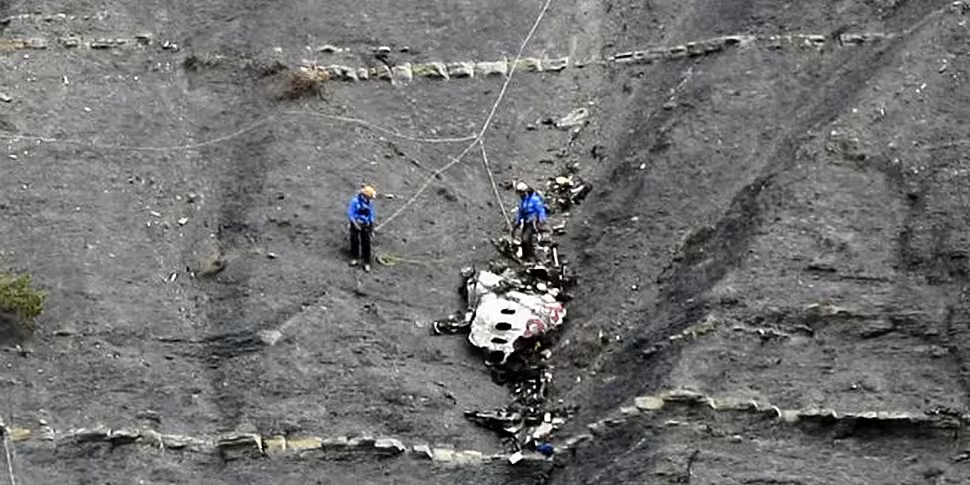It has emerged concerns over Germany's "non-conformity" with European air safety rules were voiced months before the Germanwings plane crash in the Alps.
The European Aviation Safety Agency's report - from late-2014 - found German authorities were under-staffed, which could have limited their ability to carry out checks on planes and crew.
Vetting of airline workers is in the spotlight after the German budget airline flight crashed in the French Alps, with the co-pilot believed to have intentionally crashed the plane.
Earlier today recovery efforts at the crash site were suspended.
Police there say they have stopped work - at least for the weekend - as they have already recovered most of what they need to.
Over the next couple of days, families of the victims are expected to visit a memorial at the base of a mountain close to where the plane crashed.
Data from the second black box recovered from the plane wreckage earlier this week has confirmed the co-pilot crashed the jet deliberately.
"A first reading shows that the pilot in the cockpit used the automatic pilot to descend the plane towards an altitude of 100ft (30m)," said the French BEA crash investigation office in a statement.
"Then, several times during the descent, the pilot changed the automatic pilot settings to increase the aircraft's speed."
The information appears to confirm the theory that co-pilot Andreas Lubitz (27) intentionally flew into the French Alps, killing all 150 people on board.
Authorities found the second black box, which contains technical flight data, on Thursday after a nine-day search in difficult mountain terrain.
Data from the first black box, which records conversations in the cockpit, suggested Mr Lubitz locked the captain out and then set the Airbus A320 on a collision course.
It smashed into the mountains at 430mph, instantly killing everyone on board. Half were German and more than 50 from Spain.









